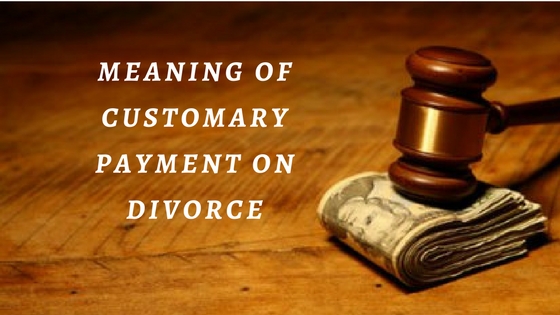Aapka Consultant Judgment Series- In this series, we are providing case analysis of Landmark Judgments of Hon’ble Supreme Court of India.
Fuzlunbi Vs. K. Khader Vali and Anr.
AIR 1980 SC 1730, 1980 CriLJ 1249, (1980) 4 SCC 125, (1980) SCC (Cri) 916, [1980] 3 SCR 1127
Hon’ble Judges/Coram: V.R. Krishna Iyer, JJ., A.N. Sen, O. Chinnappa Reddy
Date of Decision: 08.05.1980
FACTS: –
Fazlunbi, the appellant, married Khader Vali, the respondent, in 1966 and during their conjugal life, a son, Kader Basha, was born to them. The husband discarded the wife and the child, and the tormented woman, thrown out of the conjugal home, sought shelter in her parents’ abode. Driven by destitution, she prayed for maintenance allowance for herself and her son Under Section 125 Cr. P.C. and the Magistrate granted payment of a monthly sum of Rs. 250/- to the wife and Rs. 150/- to the child. The respondent-husband resorted to the unilateral technique of talaq, and tendered the magnificent sum of Rs. 500/- by way of mahar and Rs. 750/- towards maintenance for the period of iddat, hopeful thereby, of extricating himself from the obligation to maintain the appellant. The Additional First Class Magistrate vacated the grant of maintenance on the score of divorce coupled with discharge of mahar and iddat dues.
ISSUE: –
Can Mahar be considered as a customary payment on Divorce as contemplated by the section 127 of the Criminal Procedure Code, 1973?
JUDGMENT: –
The quintessence of mahar whether it is prompt or deferred is clearly not a contemplated quantification of a sum of money in lieu of maintenance upon divorce. Indeed, dower focuses on marital happiness and is an incident of connubial joy. Divorce is farthest from the thought of the bride and the bridegroom when mahar is promised. Moreover, dower may be prompt and is payable during marriage and cannot, therefore, be a recompense for divorce too distant and unpleasant for the bride and bridegroom to envision on the nuptial bed.
The language of Section 127(3)(b) appears to suggest that payment of the sum and the divorce should be essentially parts of the same transaction so as to make one the consideration for the other. At any rate the payment of money contemplated by Section 127(3)(b) should be so linked with the divorce as to become payable only in the event of the divorce. Mahar as understood in Mohammadan Law cannot under any circumstances be considered as consideration for divorce or a payment made in lieu of loss of connubial relationship. Under Section 127(3)(b) of the Cr.P.C., an order for maintenance may be cancelled if the Magistrate is satisfied that the woman has been divorced by her husband and that she has received, whether before or after the said order, the whole of the sum which, under any customary or personal law applicable to the parties was payable on such divorce. Even by harmonising payments under personal and customary laws with the obligations Under Sections 125 to 127 of the Cr.P.C. the conclusion is clear that the liquidated sum paid at the time of divorce must be a reasonable and not an illusory amount and will release the quondam husband from the continuing liability, only if the sum paid is realistically sufficient to maintain the ex-wife and salvage her from destitution which is the anathema of the law. This perspective of social justice alone does justice to the complex of provisions from Section 125 to Section 127 of the Criminal Procedure Code.
HELD: –
- The payment of an amount, customary or other, contemplated by the measure must inset the intent of preventing destitution and providing a sum which is more or less the present worth of the monthly maintenance allowances the divorce may need until death or remarriage overtake her. The policy of the law abhors neglected wives and destitute divorcees and Section127(3)(b)takes care to avoid double payment one under custom at the time of divorce and another Under Section 125.
- Whatever the facts of a particular case, the Code, by enacting Sections125 to 127, charges the court with the humane obligation of enforcing maintenance or its just equivalent to ill-used wives and castaway ex-wives, only if the woman has received voluntarily a sum, at the time of divorce, sufficient to keep her going according to the circumstances of the parties.To Get Legal Opinion from Advocates/ Legal Experts, Please click here
To Get Legal Opinion from Retired Hon’ble Judges, Please click here












